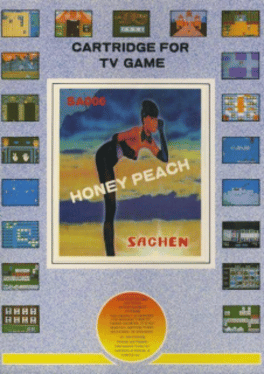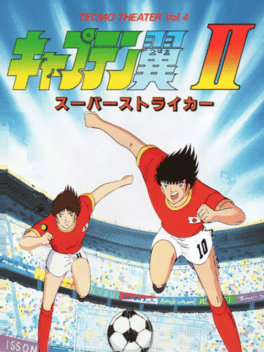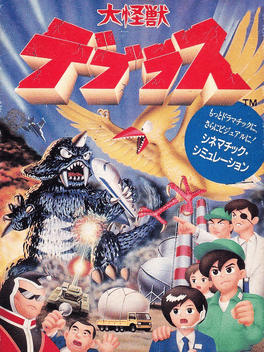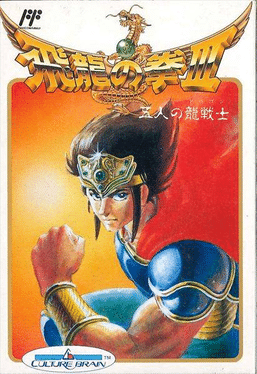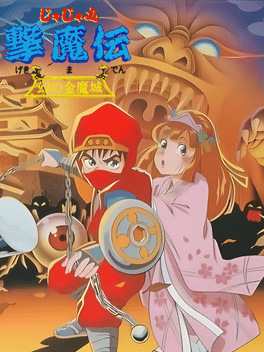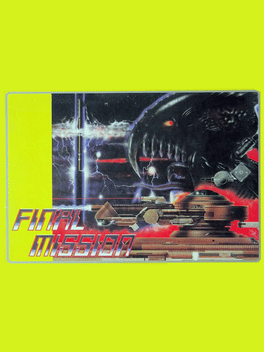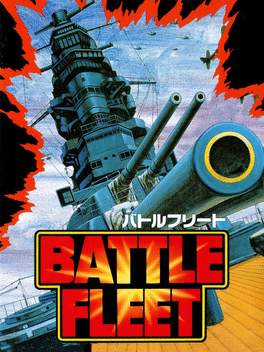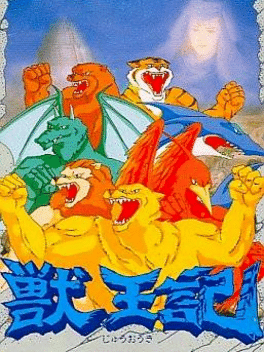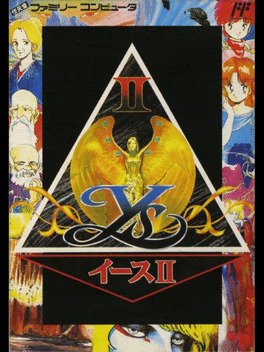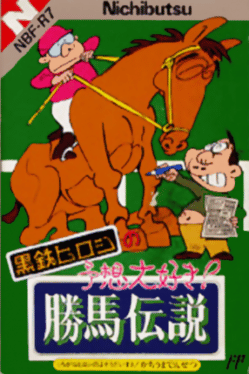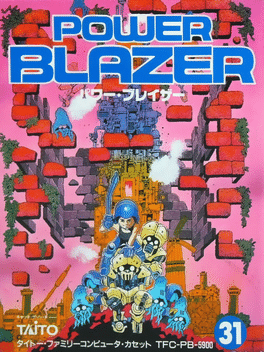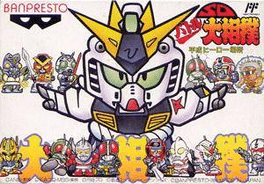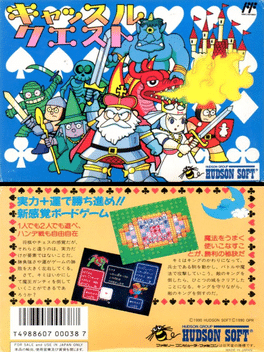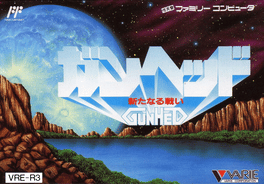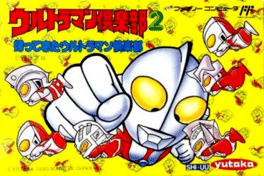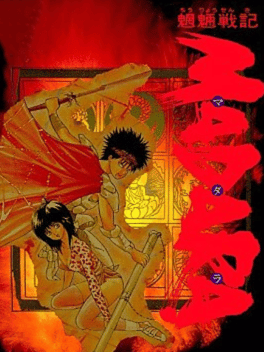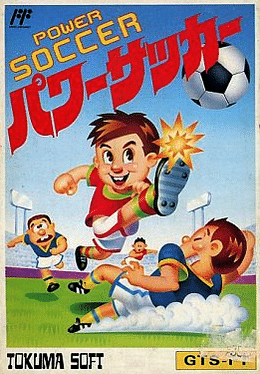New Famicom Games - Page 27
-
Honey Peach
1990
Honey Peach
1990
Honey Peach is an unlicensed strip rock-paper-scissors, or Ro-Sham-Bo, game for the NES/Famicom. Ports also exist for the publisher's own console, the Q-Boy, as well as for the Game Boy in the form of 4-packs. The goal of the game is to win two out of three rounds of rock-paper-scissors with a girl to get her to take off an article of clothing. There are six girls, each with three stages of attire before getting fully nude. After winning against a girl, you are given a password to the next match. You can enter the password in the beginning of the game after the start screen to go straight to your favorite girl. -
Captain Tsubasa Vol. II: Super Striker
1990
star 9.6Captain Tsubasa Volume II: Super Striker is a continuation of the "Cinematic Soccer" series of soccer games. It's the direct sequel to Captain Tsubasa and is fairly similar to its predecessor but with some slight graphical improvements. The game features an original new story and original characters, starting after the three-year time skip. -
Daikaijuu Deburas
1990
Daikaijuu Deburas
1990
Scientists discover a giant egg in the ocean, but before it can be studied a Giant Monster (Kaiju) erupts from the sea bent on destroying the egg. Can you battle the monster, limit your losses and ultimately rescue the egg? Tokyo is depending on it! -
Silver Eagle
1990
Silver Eagle
1990
Silver Eagle is an Action Adventure game, developed by Thin Chen Enterprises and published by Sachen, which was released in Asia in 1994. -
JaJaMaru Gekimaden: Maboroshi no Kinmajou
1990
JaJaMaru Gekimaden is an action role-playing game, with gameplay similar to The Legend of the Zelda. Players control the protagonist character through towns, dungeons, and a world map. Each different type of map features top-down exploration. When moving through a dungeon, the protagonist will gradually recover health. The protagonist can equip different types of weapons and items that he can buy or find and use them during combat. Dungeons are made up of several rooms with enemies inside. Occasionally, an enemy will drop money when defeated, which can be used to buy items or heal health points at an inn. -
Final Mission
1990
Final Mission
1990
The Japanese version of S.C.A.T.: Special Cybernetic Attack Team, Final Mission, was released a year before the American version and there are a few differences between the two. The game's opening story sequence is completely different, showing the obliteration of various cities before the alien invasion begins. Instead of a selectable male or female main character, both players control palette-swapped male soldiers, one of whom is Russian, which was inconceivable for the western market. The game's difficulty was made easier for the American version as well. Instead of six lives, the player begins with only three lives and any upgrade they possess is lost whenever their character is hit. The player's satellites also function differently. Instead of orbiting automatically, they're aligned by the player while moving the character left or right. Their firepower was also weaker. The map shown before each stage in the American version was not featured in the original Japanese version. -
Battle Fleet
1990
Battle Fleet
1990
Battle Fleet is a Strategy game, developed by Atlus and published by Namco, which was released in Japan in 1990. -
Juuouki
1990
-
Kagerou Densetsu
1990
Kagerou Densetsu
1990
Kagerou Densetsu is a Role-Playing game, developed by ITL and published by Pixel Multimedia, which was released in Japan in 1990. -
Ys II
1990
Ys II
1990
Ys II: Ancient Ys Vanished - The Final Chapter is a direct sequel to Ys: The Vanished Omens. The game continues to utilize the action role-playing combat style of the first installment, which requires the player to make the protagonist run into the enemy in order to cause damage, without the need to press an attack button. The player should choose the angles and the measure of contact with the enemy carefully, otherwise the hero will be killed. The player character can (and should) level up, perform quests for village people, gather money, and upgrade weapons and inventory, like in most other RPGs. -
Baken Hisshou Gaku: Gate In
1990
Baken Hisshou Gaku: Gate In is a Sports game, developed by Graphic Research and published by K Amusement Leasing, which was released in Japan in 1990. -
Kurogane Hiroshi no Yosou Daisuki! Kachiuma Densetsu
1990
Kurogane Hiroshi no Yosou Daisuki! Kachiuma Densetsu is a Sports game, developed by Make and published by Nihon Bussan, which was released in Japan in 1990. -
Power Blazer
1990
Power Blazer
1990
The player takes control of Steve Treiber, a highly trained soldier on a lone mission behind enemy lines. He is the only one capable of taking Brain Master offline and to save the world. Our young hero is armed with a powerful combat-boomerang called the 'Power Blazer'. The game was later westernized as Power Blade. -
SD Battle Oozumou: Heisei Hero Basho
1990
SD Battle Oozumou: Heisei Hero Basho is a sumo wrestling game starring characters from Gundam, Kamen Rider, and Ultraman. -
Castle Quest
1990
Castle Quest
1990
star 6.6Castle Quest is board strategy game mixed with magic battle confrontations. The game is like a chess clone with fantasy creatures that fight with playing cards. The player's goal is to topple the opponents king. A player controls a small army (with units like orcman, karate man, warrior etc) on a small chess board. If two pieces meet on the same square, they fight on special screen with a playing-card roulette. Depending on the cards that each unit gets they will do damage to an opponent. Different units have different health points and also different cards, for example, some units have more propensity to getting the instantly killing joker card. Some units are able to cast attack or defense spells. When these pieces move to an empty square on the map a spell window will open. Each spell can either damage surrounding squares or heal/revive surrounding units. -
GunHed: Aratanaru Tatakai
1990
GunHed: Aratanaru Tatakai is a 1990 strategy game for up to four players. It is the second game based on the 1989 sci-fi movie GunHed, the first being Blazing Lazers for the TurboGrafx-16. Aratanaru Tatakai is closer to the movie: the players re-activate GUNHED mech units to defeat the supercomputer Kyron-5 and its enforcer Aerobot. Each player chooses where on 8JO, the island base of Kyron-5, to deploy their GUNHED models, and then fights opponents in real-time combat while collecting robot pieces along the way to build stronger robotic armies. The game culminates with a fight against the powerful Aerobot. -
Ultraman Club 2: Kaette Kita Ultraman Club
1990
Ultraman Club 2: Kaette Kita Ultraman Club is a Role-Playing game, developed by Interlink and published by Bandai, which was released in Japan in 1990. -
Mouryou Senki Madara
1990
Mouryou Senki Madara
1990
Mouryou Senki Madara is a Role-Playing game, developed and published by Konami, which was released in Japan in 1990. -
Power Soccer
1990
Power Soccer
1990
Power Soccer is a Sports game, developed by Kitty Group and published by Tokuma Shoten, which was released in Japan in 1990.
